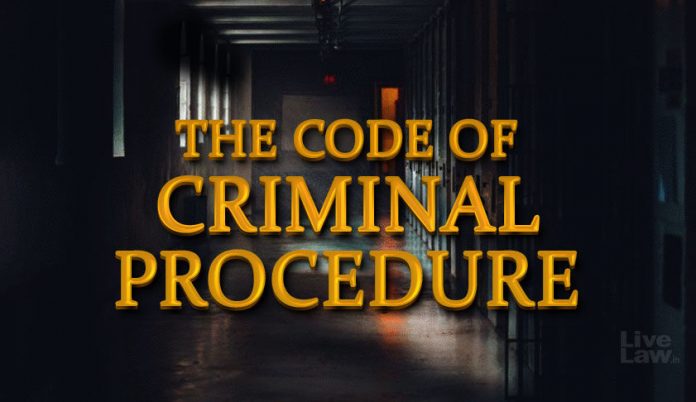This article is written by Nipun Raj, a student of Amity Law School, Ranchi. The article explains the role of a family court judge as stated by Hon’ble Mr. Justice Yashwant Varma of the Delhi High Court.
This article has been published by Sneha Mahawar.
Table of Contents
Introduction
Family court is a special court that deals with legal issues that arise from family relationships. A Family court has jurisdiction over both civil and criminal proceedings. It can deal with any litigation or proceeding involving matrimonial concerns, spousal property, the validity of any person, maintenance, guardianship, or custody or access to any minor under civil affairs. It has authority over orders relating to the support of a wife, children, and parents that are described in Chapter IX of the Criminal Procedure Code (CrPC). Hon’ble Mr. Justice Yashwant Varma of the Delhi High Court delved into the subject of the role of a family court judge while deciding the petition of Esha Dhir v. Sparsh Dhir (2021).
Background of the case
In this case, Yashwant Varma, judge of the Delhi High Court, while deciding a petition expressed his views on the subject of the role of a family court judge. The High Court, in this matter, directed the Family Court to consider the petition filed for maintenance under Section 24 of the Hindu Marriage Act, 1955.
Facts of the case
The petitioner and the respondent have been living separately since April 2018. The lower Court’s first order granted the respondent visitation rights, and the second-order provided for the system of the father being able to communicate with the child via video call as the Court was informed that the respondent was unable to exercise his visitation rights physically due to a medical condition and that the ends of justice would thus justify the continuation of the video call system to allow the father to continue interactions with the child and thus participate in his upbringing.
This Court had ordered interim maintenance of Rs. 15,000 per month to be paid by the 10th of each month beginning in February 2021, and had also ordered the payment of an additional sum of Rs. 10,000 on one occasion.
Questions raised
- Whether the two orders passed by the family court judge are valid?
- Whether the issue of interim maintenance or otherwise was liable to be decided by this Court in this writ petition even before the parties have had the liberty and opportunity to lead appropriate evidence in order for the family court judge to determine what would be just maintenance which would be payable?
- Whether the family court judge was legally justified in refusing to hear the application under Section 24 of the Act in the absence of a written statement being filed?
Decision
Hon’ble High Court was of the view that the impugned orders would merit being set aside and the matter being remitted to the family court judge who may take up the application for grant of interim maintenance as made under Section 24 and dispose of the same in accordance with law and upon due consideration of all objections that may be taken and evidence led by respective parties.
Until the aforementioned application is adjudicated on the merits, the ends of justice would also require the interim arrangement as outlined by this Court and reflected in the orders of February 02, 2021, and March 10, 2021, to be continued with the following modifications: –
- The respondent would continue to pay interim maintenance of Rs. 15,000 as was fixed by this Court in its initial order of 2nd February 2021, since presently, the respondent is unable to exercise the rights of visitation physically, the arrangement of an interactive session being put in place via a video call on a daily basis is liable to be continued.
- The Court further reserves the right of the respondent to reassert his right of physical visitation as and when his medical condition does so permit.
Analysis
- Hon’ble High Court held that there was obvious failure to follow the provisions of Section 24 of the Act and that should be enough to set aside the judgement under appeal and remit the matter back to the trial Court directing it to consider the application and then to proceed with the enquiry in the petition according to law. Irrespective of whether a written statement was filed or not, the family court judge has failed to provide any valid reason or allude to any scenario that may have hampered its competence and authority to decide this issue. Family Court has failed to record even rudimentary reasons in support of its ultimate decision to defer the decision on the application under Section 24 in the absence of a written statement being filed.
- Hon’ble High Court was of the view that the principal jurisdiction in this respect stands conferred on the family court judge. It is the primary responsibility and function of the family court judge to consider and decide what constitutes fair maintenance, interim or otherwise, that should be fixed for the upkeep and upbringing of the minor child. It would thus appear appropriate for the family court judge to be called upon to decide this question in the first instance, as it would have the benefit of evaluating the respective parties’ claims and the evidence that they may choose to lead.
- The Family Court is empowered by law to follow its own procedure provided it is consistent with the principles of natural justice and the rights of parties to a fair hearing. Learned counsel would contend that, in light of this Court’s decision, this issue is no longer res integra and is authoritatively settled.
Role of a family court judge
During his analysis of the circumstances of the case, Hon’ble Mr. Justice Yashwant Varma of the Delhi High Court stated that the family court judge is expected to play a specific and unique role under the Act, citing the following :
- It is the primary responsibility and function of the family court judge to consider and decide as to what would constitute fair maintenance, interim or otherwise, which should be fixed for the upkeep and upbringing of the minor child.
- The Court, unlike others in the hierarchy of the judicial system, does not merely preside over adversarial litigation. It also has to proactively engage with parties and act as a facilitator and mediator.
- The family court judge performs the twin role of an adjudicator as well as a problem solver called upon to deal with complex issues connected with the breakdown of families and relationships.
Conclusion
In conclusion, family courts were created to replace the scary and time-consuming nature of traditional courts. It was thought that rather than being punitive, judgment in family problems needed to be preserved in nature. The goal is for the two parties to work out their differences and tensions with the support of knowledgeable advisors. Lawyers, social workers, welfare officials, and other professionals collaborate to achieve the goal of the family courts.
References
- https://indiankanoon.org/doc/45584649/
- https://www.scconline.com/blog/post/2021/12/03/family-judge-is-supposed-to-proactively-engage-with-parties-and-act-as-facilitator-mediator/
Students of Lawsikho courses regularly produce writing assignments and work on practical exercises as a part of their coursework and develop themselves in real-life practical skills.
LawSikho has created a telegram group for exchanging legal knowledge, referrals, and various opportunities. You can click on this link and join:
https://t.me/joinchat/L9vr7LmS9pJjYTQ9
Follow us on Instagram and subscribe to our YouTube channel for more amazing legal content.
 Serato DJ Crack 2025Serato DJ PRO Crack
Serato DJ Crack 2025Serato DJ PRO Crack










 Allow notifications
Allow notifications


